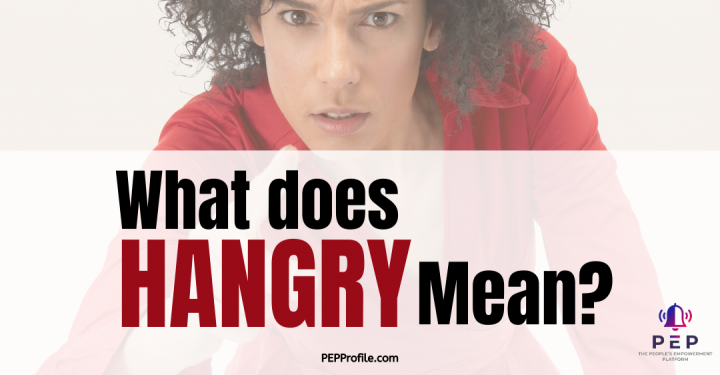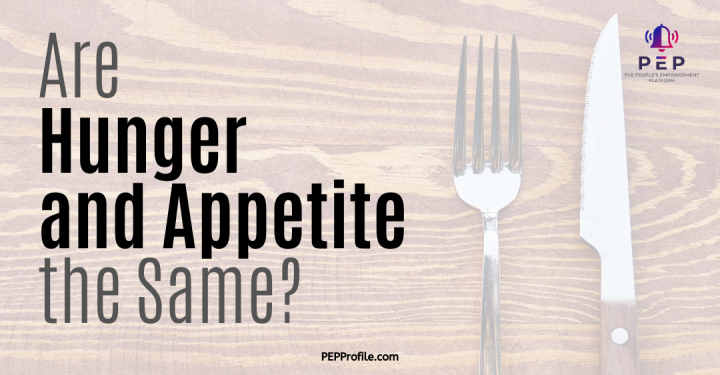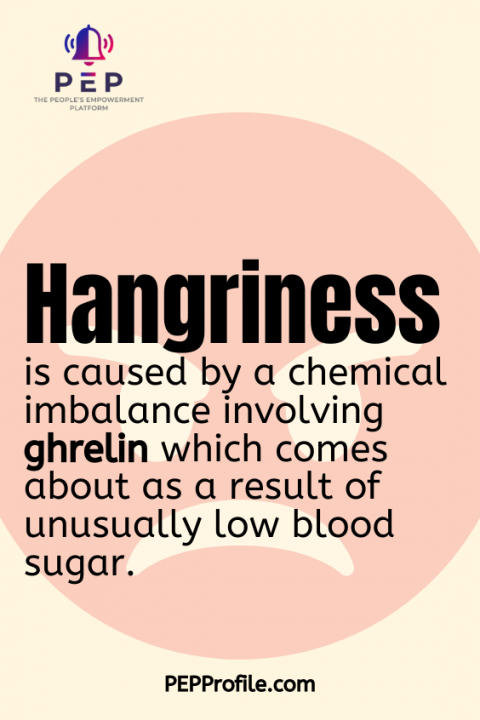Member Sign In
Login with email and password
No account yet? Register Now
Ghrelin, The "Hunger Hormone" And Our Cravings
The average adult can find themselves thinking about food around 4 times per day, adding up to a total of about 40 minutes. Now across an entire year, this comes to be about a total of 240 hours (10 days) and massing up to about 1996 pounds of food consumption.
The funny thing is that with all of this time spent thinking about and consuming food, we rarely ever stop to think about what makes us feel hungry in the first place.
Indeed, being hungry is a complex matter, however, by the end of this discussion, you’re going to have a solid knowledge of the ins and outs of what makes you hungry, and how you can use this knowledge to improve your relationship with food…so stick around.

If you’re really into knowing how your body works, interested in food and nutrition or just looking for a good educational story, then this is the place for you. For the remainder of the discussion, I am going to be combing through some of the research and information surrounding ghrelin, which has been attributed as the hunger hormone.
Particularly, I am going to be looking at two contrasting studies, the first assesses ghrelin’s relationship with obesity and the latter assesses its relationship with anorexia nervosa. In wrapping up, I'm going to tie in on how this relates with hungriness and tips to dealing with being hangry.
The feeling of wanting something to eat is a complicated matter when we think about the difference between hunger, our biological need to get nutrients, and appetite, which is our desire to consume food.
Food consumption is driven by all sorts of motivations like stress, sadness or just enjoyment. Each motivation comes with its own biological process but ghrelin is mainly involved in maintaining homeostasis.
In biological terms, homeostasis is the concept of maintaining a constant internal environment often relating to a cell or the body. Generally, the brain is at the center of all things when it comes to managing your bodily functions.
This is especially true for the hypothalamus in carrying out the unconscious processes that occur in order to keep your temperature, blood pressure and sugar levels constant, amongst many other things. Included in these things, is indeed the need to feel hungry. In fact, it’s simply wonderful just how much has to take place before we even become aware that we are hungry.

For starters, Ghrelin was discovered relatively recently, in the year 1999. Ghrelin stimulates appetite and increases food intake by acting on the hypothalamic arcuate nucleus, a region known to control food intake. Specifically, ghrelin levels increase in the blood before eating and during fasting. The timing of these is regulated by our meal routine and sleep pattern.
In light of this, it is worth mentioning that hunger is something that should feel as though it is occurring gradually, as opposed to suddenly. Nevertheless, ghrelin is thought to play a part in hunger pains around eating time and the general need to begin meals.
Ghrelin levels tend to be higher in people who are dieting (aligns with increased hunger) and lower in individuals with higher BMIs. Which is your body mass index. It’s a measure of body fat based on height and weight that applies to adult men and women.
If you’d like to calculate your Body Mass Index I’ve provided a link somewhere around here. It’s titled BMI CALCULATOR: https://www.nhlbi.nih.gov/health/educational/lose_wt/BMI/bmicalc.htm
Repeating myself just to get back on track, Ghrelin levels tend to be higher in people who are dieting (aligns with increased hunger) and lower in individuals with higher BMIs.
This suggests that ghrelin could possibly be involved in the long-term regulation of body weight. Of course, nothing could quite be explained entirely in a couple of minutes, but this is the gist of what’s going on.
Study A – Ghrelin and Obesity

In 2004, there was a study published in The Journal of Clinical Endocrinology & Metabolism entitled:
The Relationship Between Active Ghrelin Levels And Human Obesity Involves Alterations In Resting Energy Expenditure
The study was conducted by 8 members of the Operative Unit of Internal Medicine in Verbania, Italy.
The sample population consisted of 20 patients of BMI >30kg/m2 and 20 matched lean subjects of BMI <25kg/m2, ages ranged between 22-43 years. All subjects were non-smokers and were all free of metabolic and cardiovascular disorders. Testing was carried out at 8:00 am under fasting conditions, 3 days after admission.
The conclusions of the studies strengthened the claim that ghrelin activity is tied to energy balance and regulating hunger. Moreover, the research further suggested that obesity may be associated with lower levels of ghrelin, though the definitive relationship remained unclear.
This is the first clue that while ghrelin might be related to feeling hungry, it’s the relationship with weight loss or gain is far more complex. The idea that ghrelin might be inversely related to calorie intake has also been further supported by research. To this end, there have been findings where individuals who lose weight end up producing more ghrelin than was produced prior to weight loss - almost as if the body is trying to regain lost fat.
Some of the reasoning behind this is that excess weight may increase ghrelin sensitivity. The understanding of how ghrelin affects the body is further complexified by looking at persons who are afflicted with eating disorders. For instance, we will be examining ghrelin levels in individuals living with anorexia nervosa.
Study B – Ghrelin and Anorexia Nervosa (AN)
In 2005, there was a study published by the American Physiological Society entitled:
Secretory Dynamics Of Ghrelin In Adolescent Girls With Anorexia Nervosa And Healthy Adolescents
The research was sponsored in part by the National Institutes of Health Grants and was conducted by 7 members of the Neuroendocrine Unit in Boston, Massachusetts.
The study population consisted of 23 adolescent girls with AN and 21 controls of comparable maturity. Sampling was conducted overnight, every half-hour for 12 hours. Ghrelin, leptin, cortisol, and GH secretion were all examined.
In the end, the research concluded by stating that it had demonstrated elevated ghrelin concentration parameters in girls with AN as compared to controls. This is consistent with the idea that a lower weight can result in higher levels of ghrelin. It also gives a deeper image of the difficulty in dealing with anorexia as a condition.
On one hand, it would seem as though the body is begging for nutrients via increased ghrelin, but on the other hand, the disease is saying that the feeling of hunger is a good thing and can lead to the individual completely ignoring the feeling in extreme cases.

As a bonus:
I am going to take a quick look at the phenomenon behind the anger and frustration we feel as a result of being hungry. As I mentioned earlier, there’s an extensive process behind becoming hungry. As the spokeswoman for the American Dietetic Association explains:
"When [blood sugar] is low, the hypothalamus is triggered and levels of several hormones such as growth hormone, leptin, and ghrelin are affected. This imbalance then causes a shift in neurotransmitters and suppresses serotonin receptors."
It is this chemical imbalance that causes you to behave so besides yourself, not a lack of self-control…so don’t feel too bad about it.
Conclusion:
So, there you have it, two contrasting studies that are highlighting some of the effects of ghrelin in regulating hunger stimulus.
Here are some quick tips to deal with it:

In conclusion, the body is complex and no one hormone is ever fully responsible for a bodily function to be regulated. That being said, the relationship between ghrelin and inspiring hunger, cannot be ignored.
Perhaps, in the future, there would be more definitive research on how to incorporate ghrelin blocking supplements in weight loss programs. For now, though, it might be enough to just understand a little more about what is working against you as you try to achieve your weight-loss goals.
Last but not least! I’d love to hear from you! Tell me about something you’ve done out of sheer HANGRINESS!
References:
http://applications.emro.who.int/imemrf/J_Med_Sci/J_Med_Sci_2010_3_2_92_95.pdf
https://www.yourhormones.info/glands/hypothalamus/
https://www.yourhormones.info/hormones/ghrelin/
https://academic.oup.com/jcem/article/89/2/936/2840818#61583257
https://www.obesityaction.org/community/article-library/ghrelin-the-go-hormone/
https://www.ncbi.nlm.nih.gov/pmc/articles/PMC6073411/
https://academic.oup.com/jcem/article/90/9/5082/2838663
https://www.nbcnews.com/healthmain/watch-out-food-swings-when-hunger-anger-collide-1C6436944
Login with a social network